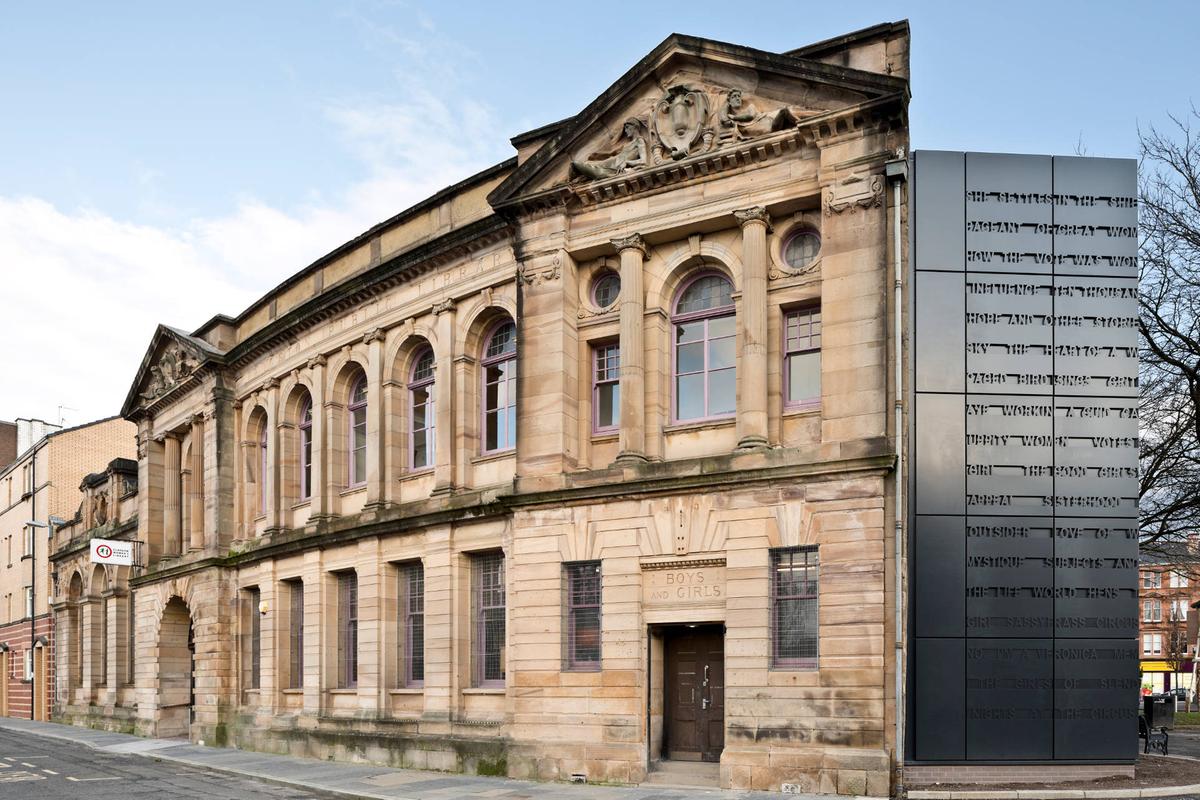According to the Social Enterprise in Scotland Census 2019 there are more than 6,000 social enterprises across the country, which employ more than 88,000 people and collectively contribute £2.3bn to the economy.
SENScot is the umbrella body for social enterprise networks in Scotland and promotes and champions the work of front-line social enterprises, with a commitment to reflect the views and aspirations of its members. The organisation has been at the forefront of the social enterprise movement in Scotland for over 20 years and were instrumental in developing and shaping Scotland’s existing support infrastructure - both nationally and locally.
We spoke with Sarah Cameron, Cultural & Creative – Tourism Development Manager at SENScot to discuss the work of the organisation and discover more about Scotland’s social enterprises.
The Scottish Traditional Boat Festival 2022, Raft Race winners. © Reg Connon
What is a social enterprise?
A social enterprise is a trading business which has the primary objective of achieving social and or environmental benefits. The organisations are run in a transparent way, with all profits reinvested into the business or beneficiaries of the community. Social enterprises are asset locked, so if they no longer existed any assets would go to another social enterprise, not to an individual.
In 2012, The Voluntary Code of Practice for Social Enterprise in Scotland was developed by several individuals and organisations working within the sector. The Code sets the boundaries between social enterprise, the public sector and the private sector and defines clear values and behaviours of these organisations.
What sectors are social enterprises engaged in?
Social enterprises work across a wide range of sectors, and work to find solutions to some of the world’s biggest challenges such as climate change and poverty.
At SENScot we predominately work with grassroots organisations, which work closely with their local communities. These organisations cover a huge range of subject matters including employment and childcare.
There are also several social enterprises working within Scotland’s tourism sector, which ensure that the country’s offering is inclusive to all, environmentally sustainable and connected to and benefits local communities. This also covers the incentive market.
There are also social enterprises that run events and festivals. A prime example of this is The Scottish Traditional Boat Festival, which takes place in Portsoy, Aberdeen. The success of the festival has seen investments into upgrading local infrastructure and venues.
Some social enterprises are also responsible for running venues, for example the Grassmarket Community Project in Edinburgh, which runs the award-winning Grassmarket Centre.
Where does Scotland sit internationally in terms of its policies and work in Social Enterprise organisations, both in our cities and rural areas?
Scotland is seen as a world leader when it comes to social enterprise at a policy level. There are some great working relationships between Scottish social enterprises with Governments, academia, and other social enterprise networks across the globe. SENScot is also part of the European Social Enterprise Network, with a strong working relationship with Diesis. The Diesis Network specialises in supporting the development of the social economy, social entrepreneurship and social innovation, with membership from over 20 countries.
Something that we do need to work on is strengthening the connections between the tourism sector and the third sector (charities, fundraising organisations etc.) to create greater impact and appeal to different visitors.
We’ve already seen a shift in behaviour from Scotland’s visitors, with many now looking closely at what their money is doing when they spend it in a country, keen for it to benefit local communities and have a positive impact. Tourism and events are a huge part of that solution and will help us tell this powerful story to the world.
Another thing Scotland is particularly strong at is developing and nurturing long-term relationships. Conferences and meetings within our cities provide a great platform to build these connections, share best practise and exchange ideas and stories that benefit and support others.
SENScot’s annual conference has always been a unique event, known as the SENScot Ceilidh the event created opportunity for grassroot organisations to connect with policy makers and national leaders. The social enterprises who attend are passionate about the work that they do and enjoy having the opportunity to share best practice and knowledge with others.
Are there any social enterprises that work with event organisers?
There are 19 local Social Enterprise Networks set up across the Scotland, which can help organisers find out more information on the organisations working in the event destination.
The Glasgow Women’s Library is a very welcoming, inclusive and inspiring example. The venue, which can be used to host events, organises walking heritage tours around Glasgow which focus on the hidden histories of women and ones specific to the LGBTQ+ community. The library also has its own programme of events and training courses and is involved in local heritage and social projects that might be of interest for groups.
The Angus Tourism Co-operative is a great example of a collaborative approach to tourism. The group is made up of local businesses and organisations, which represent and operate within the tourism community in Angus. The group is also involved in the Flourishing Destinations Approach, a project in partnership with Romania and Belgium to create a model for a community-led sustainable tourism development.
Social enterprises are an integral part of Scotland’s ethos. The pandemic brought into sharp focus just how important our local communities are. Now is the time for us to empower our communities and encourage them to work in collaboration with the private sector to provide long-lasting and enriching benefits to those visiting Scotland and also to local areas.
To find out more visit - senscot.net and ruralsehub.net
If you have any queries, please get in touch with Sarah Cameron.


